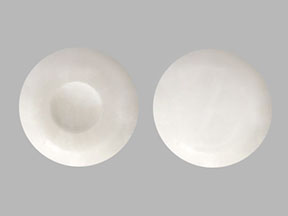Timothy grass pollen allergen extract and Alcohol/Food Interactions
There is 1 alcohol/food/lifestyle interaction with timothy grass pollen allergen extract.
Timothy Grass Pollen Allergen Extract Food/Lifestyle
Moderate Food Interaction
Consuming food or beverage during or immediately after using timothy grass pollen allergen extract may reduce the amount of allergen extract available for absorption from tissues under the tongue into the blood stream. Food or beverage should not be taken with, or for at least 5 minutes after, using timothy grass pollen allergen extract. Use of alcohol with timothy grass pollen allergen extract may increase the risk and severity of allergic reactions that can sometimes occur during treatment with timothy grass pollen allergen extract. Potentially life-threatening or fatal reactions may occur. Talk to your doctor if you have any questions or concerns. Stop using timothy grass pollen allergen extract, administer epinephrine, and seek immediate medical attention if signs and symptoms of an allergic reaction develop such as trouble breathing, swallowing, or speaking; throat tightness or swelling; dizziness, lightheadedness, or fainting; rapid or weak heartbeat; severe stomach cramps or pain; vomiting or diarrhea; and/or severe flushing or itching. It is important to tell your doctor about all other medications you use, including vitamins and herbs. Do not stop using any medications without first talking to your doctor.
Switch to professional interaction data
Timothy grass pollen allergen extract drug interactions
There are 140 drug interactions with timothy grass pollen allergen extract.
Timothy grass pollen allergen extract disease interactions
There are 3 disease interactions with timothy grass pollen allergen extract which include:
More about timothy grass pollen allergen extract
- timothy grass pollen allergen extract consumer information
- Check interactions
- Compare alternatives
- Side effects
- Dosage information
- During pregnancy
- Drug class: allergenics
- En español
Related treatment guides
Drug Interaction Classification
| Highly clinically significant. Avoid combinations; the risk of the interaction outweighs the benefit. | |
| Moderately clinically significant. Usually avoid combinations; use it only under special circumstances. | |
| Minimally clinically significant. Minimize risk; assess risk and consider an alternative drug, take steps to circumvent the interaction risk and/or institute a monitoring plan. | |
| No interaction information available. |
See also:
Further information
Always consult your healthcare provider to ensure the information displayed on this page applies to your personal circumstances.


